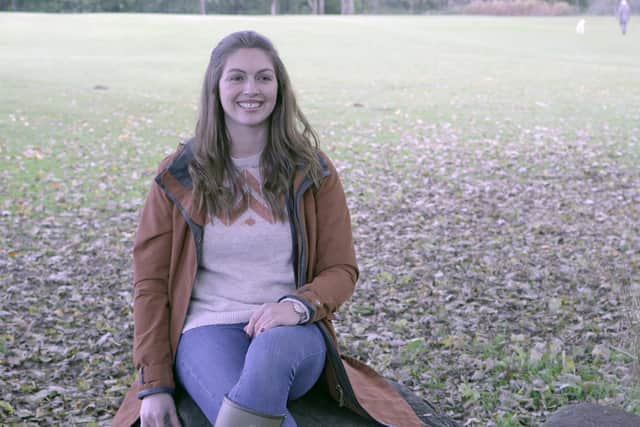Telling it how it is
and live on Freeview channel 276
Despite growing up on a small farm in the south west coast of Scotland, Claire Taylor is honest about her reroute back into agriculture six years ago. In such a short space of time, she has become a familiar face within the farming community and outside it. She has championed UK farming on major broadcasts including BBC and has been a rare voice of reason in the debate about global food production.
An ambassador for NextGen Agriculture Impact Network and a 2023 Nuffield Farming Scholar, Taylor is well travelled and is equipped with a worldly view. In a recent interview with BBC Scotland, she challenged a familiar perception of feed lots by simply adding context.
Advertisement
Advertisement
“What I said on the programme (BBC Scotland), the presenter said to me, ‘Isn’t it appalling these feed lots in South America and North America?’ What I should have said is, ‘Have you been to one? Have you seen it for yourself or have you been fed that by the journalism you subscribe to?’


“The point I was making, in this country we can feed ourselves quite efficiently, but actually, South America, I have friends who are beef farmers in Brazil, they are literally feeding the world. If you actually step outside our bubble and look globally at malnutrition levels and how many people are eating meat regularly, I think we are actually privileged. There’s got to be people who are doing what we’re not (feeding the global population). That is South America. That’s what these feed lots are doing. That’s what North America do.
“We’ve also got to have a conversation around feeding a growing population by 2050 - 10 billion people. A lot of that population will be in Africa. I had this really moving conversation after the BBC interview where the farmer said to me, ‘It’s such a privileged position that we can even be considering cutting down production. In Zimbabwe, a family might have meat once a month. The conversation should be about how do you better distribute that food and actually tackle global food security’.
“We still need to be honest about our carbon footprint. We need to improve our sustainability, but I don’t think we’re going to get anywhere by criticising the farmers that are doing what we can’t,” said Taylor.
Self-sufficiency and seasonality
Advertisement
Advertisement
At the UK’s first ever food summit at Downing Street in June 2023, the Prime Minister made a commitment to maintain the UK’s self-sufficiency level of 60%. However, a policy has yet to be put in place to safeguard it.
“I think the best thing is to obviously increase our self-sufficiency where we can. It leaves us less vulnerable to future disruptions in food supply chains.
“My argument around self-sufficiency often comes back to seasonality. I think we have utterly forgotten about seasonality as consumers. In January we are having blueberries in our porridge, and we expect that year-round. Even if we look at cut flowers. A while ago somebody decided that roses were going to be for Valentine’s Day. We don’t produce roses at Valentine’s Day. We have to import them from Kenya. This is what’s happened, we’ve got to a stage where because of clever marketing, we’ve bought into what the retailer is telling us to do. So how do we shift that change? That’s the thing I find difficult.”
Helping out
Taking the local landscape into consideration and that greenhouse gases from UK beef are about half the global average, Claire sees potential for the UK to deliver more for the benefit of consumers at home and abroad.
Advertisement
Advertisement
“If you look at Scotland, 85% of our land here can’t grow vegetables or cereals. We can plant trees which the government is really pushing for, we can have wildflower meadows, we can have hedges, but the best thing we can do is grow grass that we can convert into nutrient dense brilliant protein. We could probably afford to do more of that because we’ve got this amazing temperate climate. We have amazing natural resources.
“Also, if we’re exporting there is an opportunity there as well to have higher value with produce and that’s good for the economy, for wages, for labour. There are so many knock-on effects to the community, for rural Scotland. I’m always passionate about yes, you can try and tap into something from the environment end but what is the social impact of that on people and what is the economic impact of that too?
“If we could find a better way of producing food and exporting it and having better relationships, I think that is a very positive thing,” said Taylor.
You can also listen to the full UFU podcast with Claire Taylor by visiting Spotify or Amazon Music and searching, UFU podcast Farming 24/7.